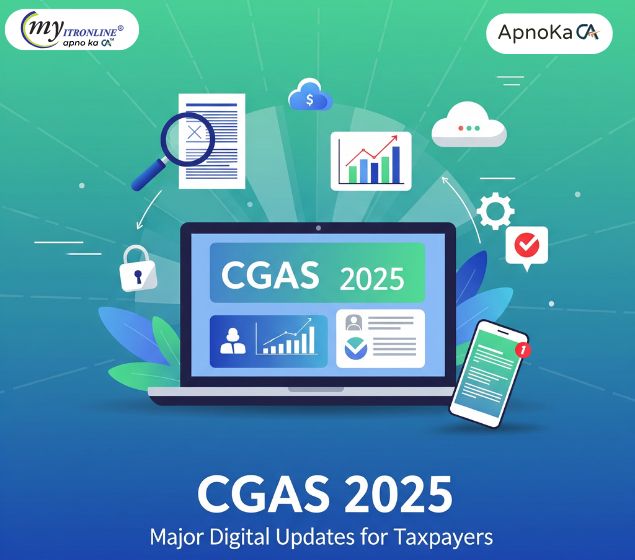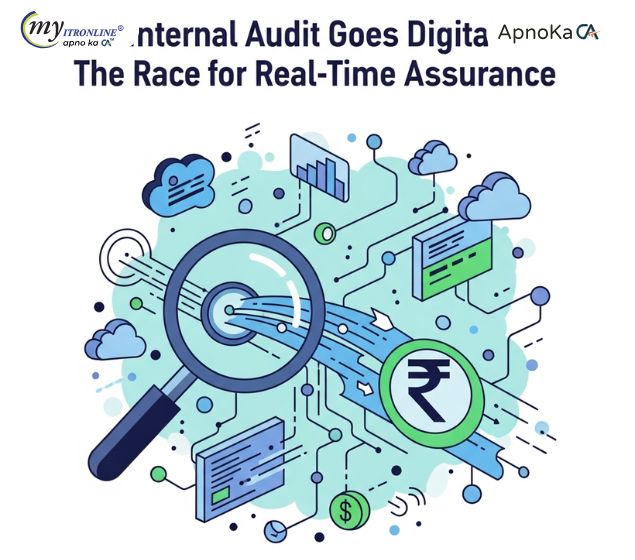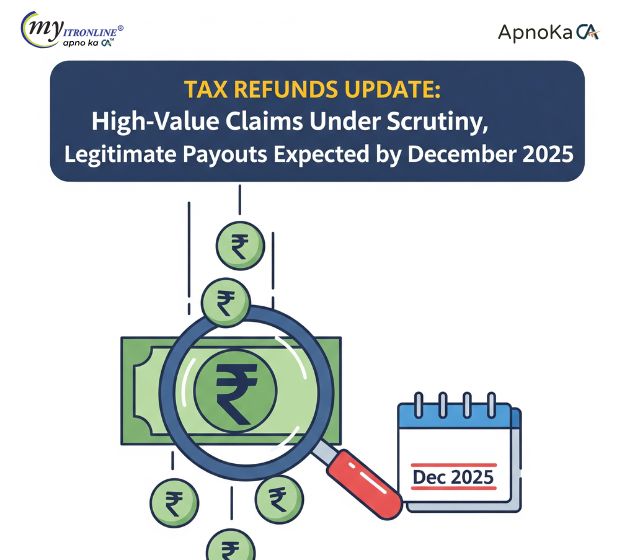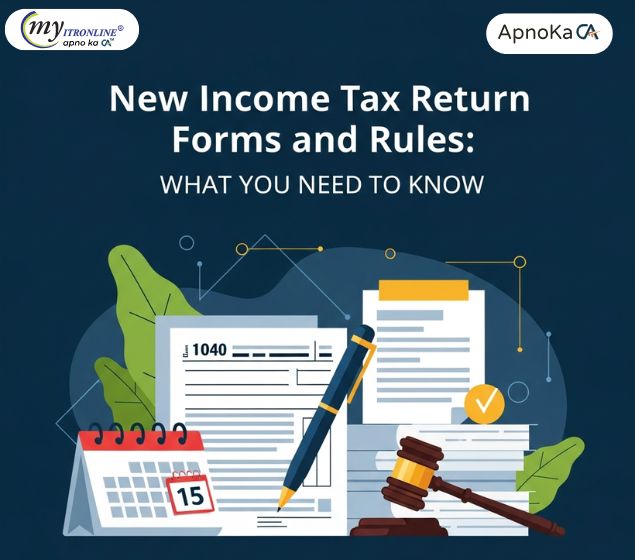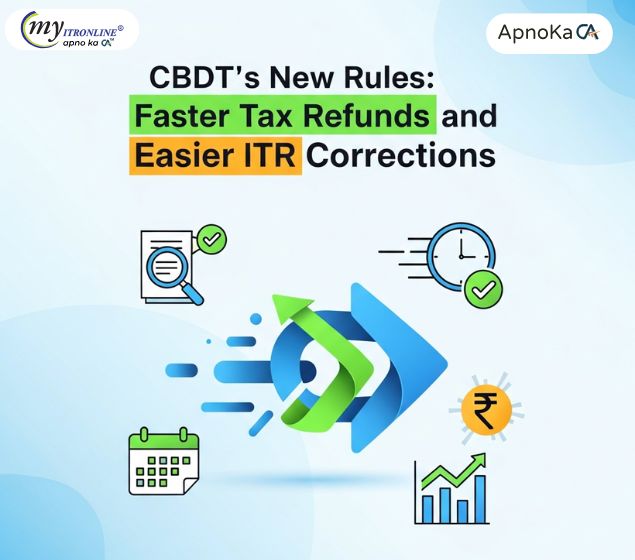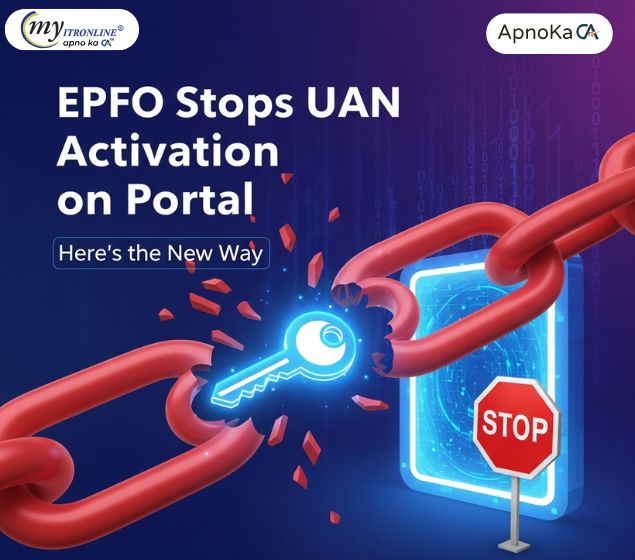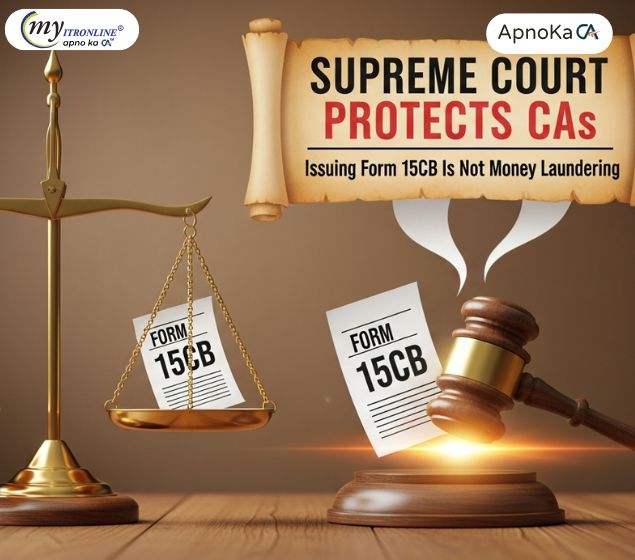Understand Section 54D: Tax Relief on Capital Gains for Forced Acquisition of Industrial Property
Section 54D of the Income Tax Act gives firms significant tax breaks on capital gains resulting from the compulsory acquisition of industrial property or structures. This blog discusses the qualifying criteria, investment conditions, and processes for reinvesting compensation to benefit from the exemption. Learn how to use this helpful clause to minimize taxes while also ensuring business continuity.
.png )
Section 54D of the Income Tax Act: Tax Exemption on Forced Acquisition of Industrial Property
The Income Tax Act's Section 54D provides an exemption from taxes on capital gains resulting from the forced acquisition of buildings and land used for industrial purposes.
Section 54D offers tax relief to taxpayers for capital gains resulting from the forced purchase of real estate and buildings utilized for industrial purposes. If the money from the transaction is used to buy or build another piece of property or building for the firm within a certain period, the clause permits an exemption from capital gains tax.
Important Aspects of Section 54D's Applicability
Capital gains resulting from the forced purchase of real estate or structures utilized for industrial purposes are covered by Section 54D. Prior to the date of forcible acquisition, the assessee must have used the land or building for their business or industrial operations for at least two years.
Industrialists whose property has been purchased by the government for public purposes such as urbanization, infrastructure development, or other reasons would find this section especially helpful.
Gains on Capital Exemption:
- If the assessee uses the compensation obtained to buy or build another piece of land or building for industrial purposes, Section 54D exempts from tax the capital gains resulting from the forced acquisition of the industrial property.
- A deadline must be met for the purchase or construction of the new property.
Maximum Reinvestment Time:
- The taxpayer has three years from the date of compensation receipt to buy another piece of land or building for industrial use.
- The taxpayer has three years from the date of compulsory acquisition to finish construction on any new industrial building.
Requirements for Pursuing Section 54D Exemption
The taxpayer needs to fulfill the following requirements in order to receive the advantages of Section 54D:
Obligatory Purchase:
The building or land that is compelled to be acquired for industrial use alone must be the source of the capital gains. Property transfers or sales that are voluntary are not permitted by this provision.
Utilization of the Asset:
Before acquiring the property, the assessee had to have utilized it for industrial purposes for a minimum of two years. This indicates that during this time the property ought to have been actively used for commercial or industrial purposes.
Making Use of Compensation
Reinvesting the money from the forced acquisition in the purchase or construction of another industrial property or structure is required. Reinvestment can take place either before or after the acquisition, but the deadline needs to be followed.
Property Type:
The new property that is built or purchased must also be used for industrial purposes in order to qualify for the exemption. Purchases of commercial or residential real estate are not covered by this provision.
Section 54D Calculation of Exemption
The amount of capital gains and the cost of the newly built or acquired property determine the exemption amount under Section 54D. This is how the exemption amount is calculated:
- In the event that the new property's cost equals or exceeds the capital gains, the full gain will be tax-free.
- In the event that the capital gains exceed the cost of the new property, the exemption will only apply to the actual costs incurred in building or purchasing the new property, and the remaining capital gain will be taxed.
For instance: Assume a ₹50 lakh compensation is given to an industrialist for the forcible acquisition of his manufacturing land, and a ₹30 lakh capital gain is computed. The entire ₹30 lakh capital gain is tax-free if the industrialist reinvests ₹30 lakh or more in buying new industrial site. But if just ₹20 lakh is reinvested, ₹20 lakh will be exempt, and the remaining ₹10 lakh will be taxable.
Contribution to the Capital Gains Account Plan:
If reinvestment is not feasible prior to the income tax return filing deadline, any unused funds may be placed in a public sector bank's Capital Gains Account Scheme (CGAS). The sum put in this program is deemed invested to qualify for the exemption, but it must be taken out and utilized within the allotted three years.
Taxes on the Amount Not Used:
The money deposited in CGAS will be considered capital gains for the year it expires and taxed as such if it is not used within the allotted three years.
Creating an Account:
Any nationalized bank may open the account prior to the deadline for filing the income tax return for the year the capital gains occurred.
Account Types:
CGAS accounts come in two varieties: Type B (fixed deposit) and Type A (savings account). The taxpayer can choose either, depending on the time required to reinvest the capital gain.
Making Use of Funds:
During the three years, the deposited funds must be utilized for the purchase or construction of new real estate. If not, at the conclusion of the three years, it will be considered taxable income.
Latest Modifications and Updates
To make claiming exclusions under Section 54D easier, the following modifications have been made:
- Greater Emphasis on Compliance: The Income Tax Department has implemented stronger compliance measures to ensure that taxpayers fulfill the requirements, such as timely reinvestment and utilization of compensation.
- Digital Documentation and Validation: The Income Tax Department's online portal has simplified the procedure of claiming exemptions. Taxpayers can now electronically submit their claims and attach the necessary files for review.
- Clarifications on Capital Gains Tax Rules: Recent clarifications on the valuation of properties and buildings subject to forced purchase have provided more clarity on how compensation is determined and taxed.
In Summary
Businesses that are forced to acquire their buildings or land through compulsory acquisition can find substantial relief under Section 54D of the Income Tax Act. The clause facilitates business continuity by granting tax exemptions on capital gains, which can be reinvested in new industrial assets. It is imperative to adhere to the requirements outlined in this section, particularly the reinvestment timelines, in order to be eligible for this exemption.
Section 54D is a helpful instrument for businesses and industrial entities to lessen the financial burden of forced land acquisition. Maintaining appropriate investments and following regulations can result in significant tax savings, supporting business survival.
FILING YOUR INCOME TAX RETURN F.Y 2024-25 (A.Y. 2025-2026) WITH MYITRONLINE
The income tax filing deadline is right around the corner. If you haven’t filed yet, do it today with Myitronline! Avoid last minute rush and file your tax return today on MYITRONLINE in Just 5 mins.(www.myitronline.com)
If you are looking for eCA assistance to file your income tax return/ GST, you can opt for MYITRONLINE eCA assisted plan starting
Upload Salary Individual Form-16
If you have any questions with filing your tax return, please reply to this mail. info@myitronline.com OR call 9971055886,8130309886.
Note-All the aforementioned information in the article is taken from authentic resources and has been published after moderation. Any change in the information other than fact must be believed as a human error. For queries mail us at marketing@myitronline.com
Krishna Gopal Varshney
An editor at apnokacaKrishna Gopal Varshney, Founder & CEO of Myitronline Global Services Private Limited at Delhi. A dedicated and tireless Expert Service Provider for the clients seeking tax filing assistance and all other essential requirements associated with Business/Professional establishment. Connect to us and let us give the Best Support to make you a Success. Visit our website for latest Business News and IT Updates.
Leave a reply
Your email address will not be published. Required fields are marked *Share this article
Krishna Gopal Varshney, Founder & CEO of Myitronline Global Services Private Limited at Delhi. A dedicated and tireless Expert Service Provider for the clients seeking tax filing assistance and all other essential requirements associated with Business/Professional establishment. Connect to us and let us give the Best Support to make you a Success. Visit our website for latest Business News and IT Updates.
View articles










